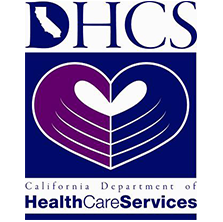Table of Contents
ToggleMental Health and Addiction
Mental health and substance addiction often go hand in hand. According to the Journal of American Medical Association, 50% of individuals with a severe mental health condition also have a co-occurring substance abuse disorder. Those suffering from mental health illnesses are more likely to abuse drugs or alcohol in an effort to self-medicate. Comparatively, those who abuse drugs or alcohol are at higher risk of developing a mental illness. Each illness can have an effect on the other.
Co-Occuring Mental Disorders
Co-occurring disorders refer to the coexistence of a mental illness along with a substance abuse disorder. Individuals suffering from undiagnosed mental health issues will often turn to alcohol and drugs to treat their symptoms. Alcohol or drug use may temporarily relieve symptoms such as anxiety, restlessness, depression or panic. However, when the person is not under the influence, symptoms return and could potentially be worse than before.
Addiction can also be an issue for those diagnosed with a mental illness. One reason being the unpleasant side effects of some prescribed medication. For example, patients prescribed with mood stabilizers may experience feelings of depression. They may attempt to treat that with alcohol or drugs. Unfortunately, there is still a stigma surrounding mental illness and medication. Patients that don’t want to take medication due to these negative stereotypes will continue to self-medicate.
Addiction Impacts Mental Health
Drug and alcohol abuse can set off mental health issues by triggering traumatic life events. Chronic substance abuse increases an individual’s risk of physical and sexual assault. Poor decisions like breaking the law and contracting diseases from shared needles and unprotected sex are also common under the influence. These traumatic events can lead to serious mental health problems like PTSD, eating disorders, depression and panic attacks.
Teenagers and adolescents that use drugs and alcohol put themselves at an increased risk of mental health disorders. At this age, the brain is still developing when drugs and alcohol intervene. Heavy drug use during these developmental years alter the social and cognitive areas of the brain, resulting in mental health disorders later on in life. Most commonly, anxiety and depression.
The Road to Recovery
Whichever symptoms appear first, it is important to treat both disorders concurrently. If symptoms of an untreated mental health disorder are left untreated, it reduces the chance of a person staying sober long-term. The same goes for untreated substance addiction, which can make mental health treatment unsuccessful. This is why it’s crucial to find a treatment center that specializes in treating co-occurring mental health disorders along with addiction.
At Safe Harbor Treatment Center, we use a variety of programs specifically created to overcome co-occurring conditions. Each person suffering from co-occurring conditions are different when it comes to dealing with their addiction and mental illness. Using an individualized approach, treatments are designed to relieve an array of physical and mental symptoms associated with co-occurring conditions. Treating both addiction and existing co-occurring disorders simultaneously is crucial in ensuring long-lasting recovery.
SAFE HARBOR HOUSE



